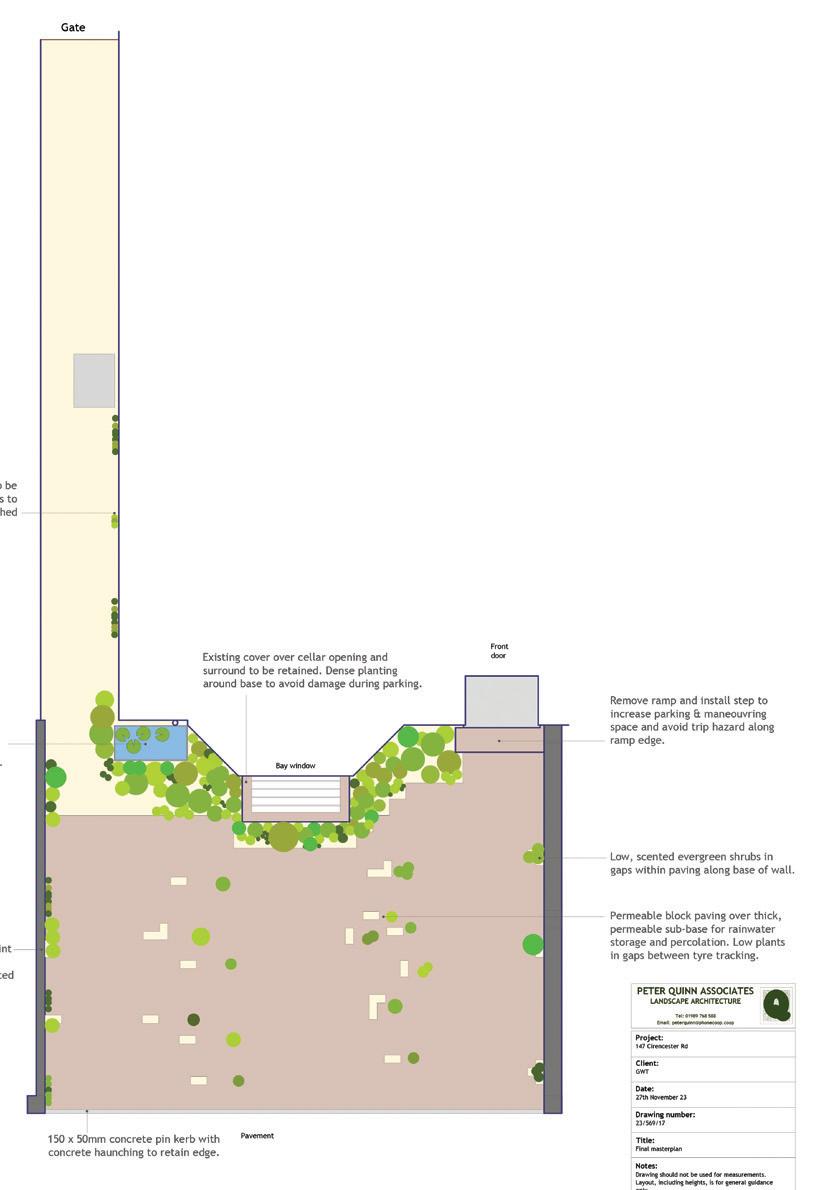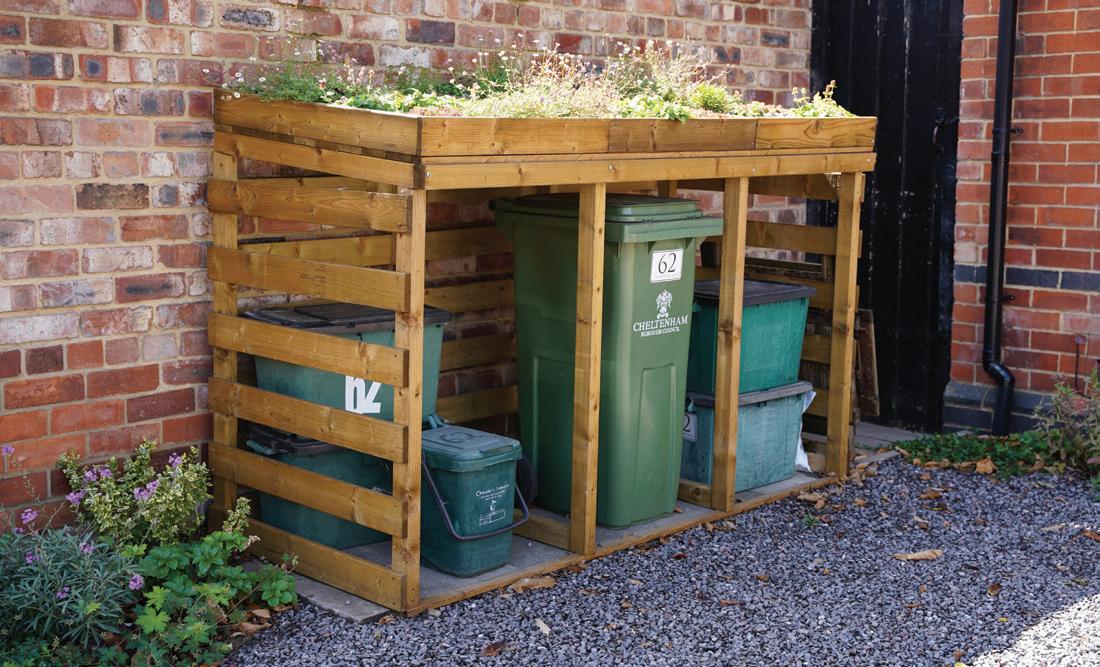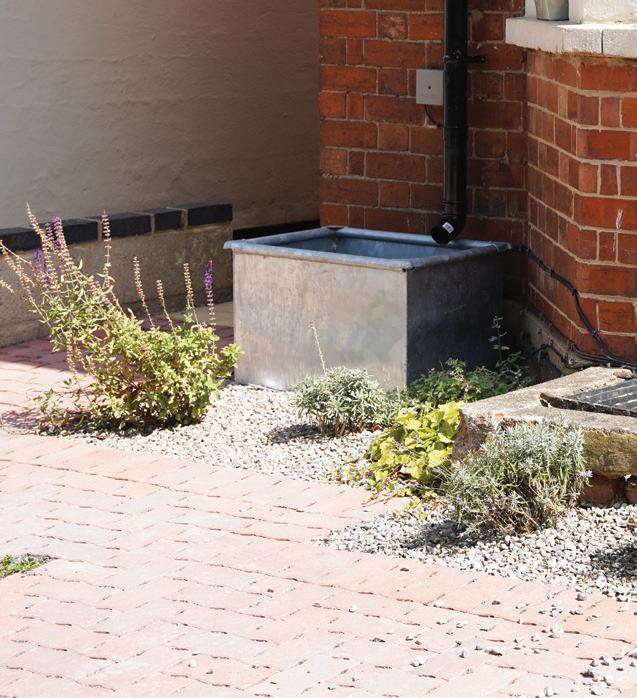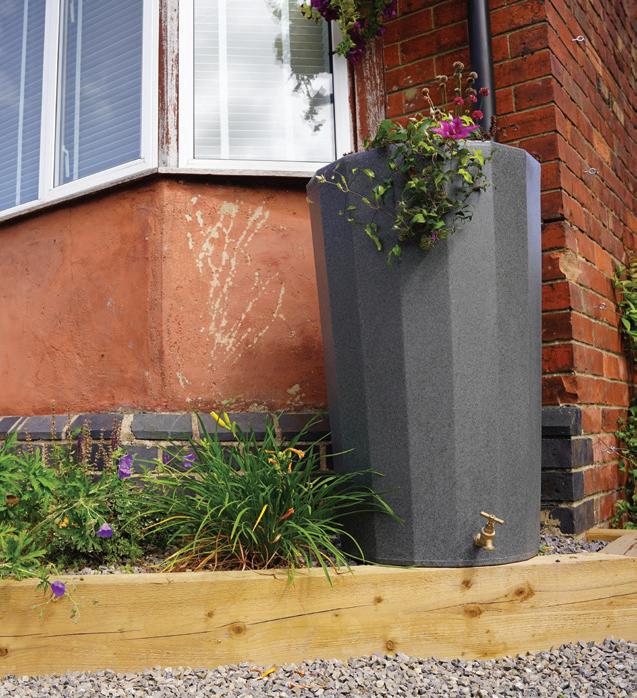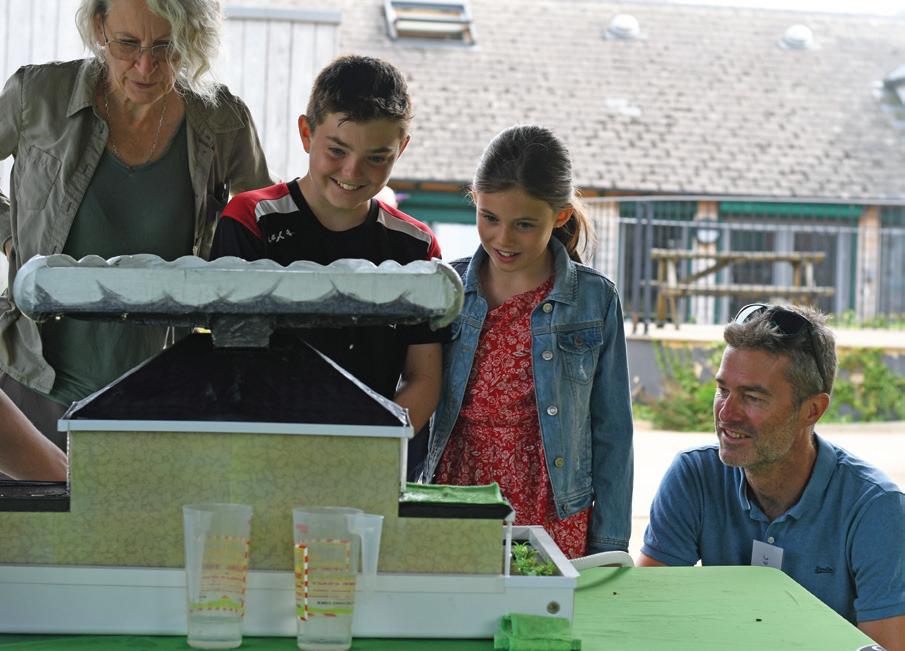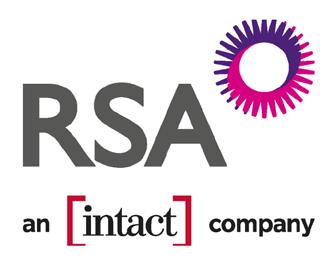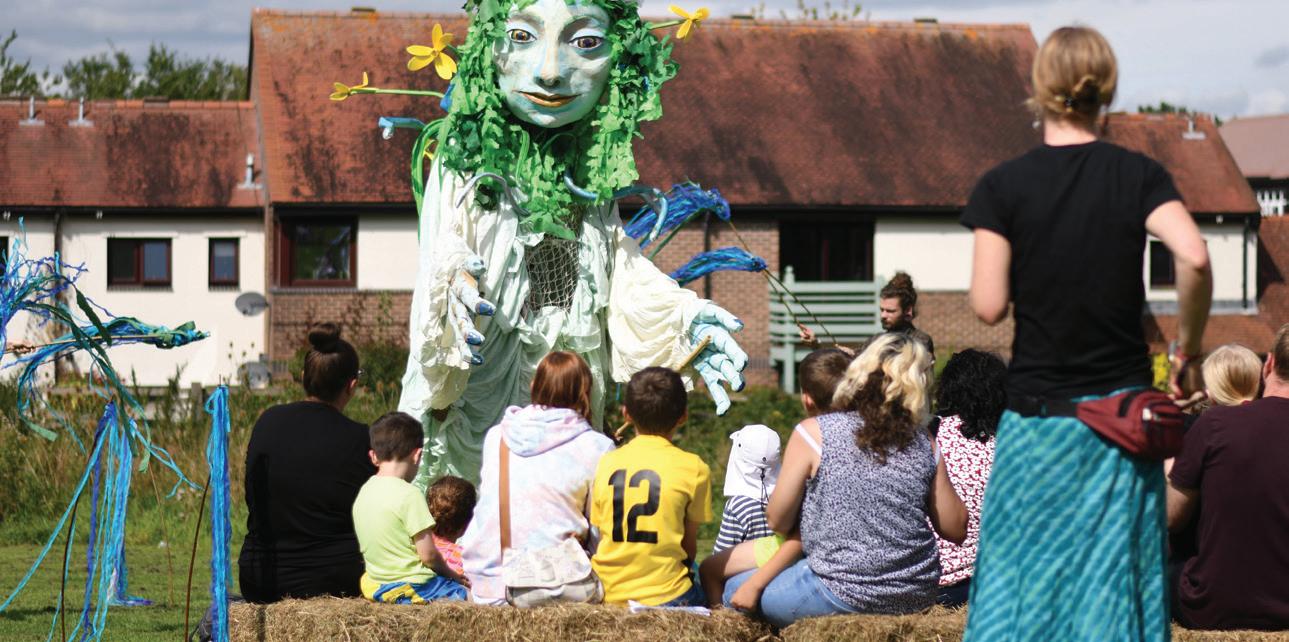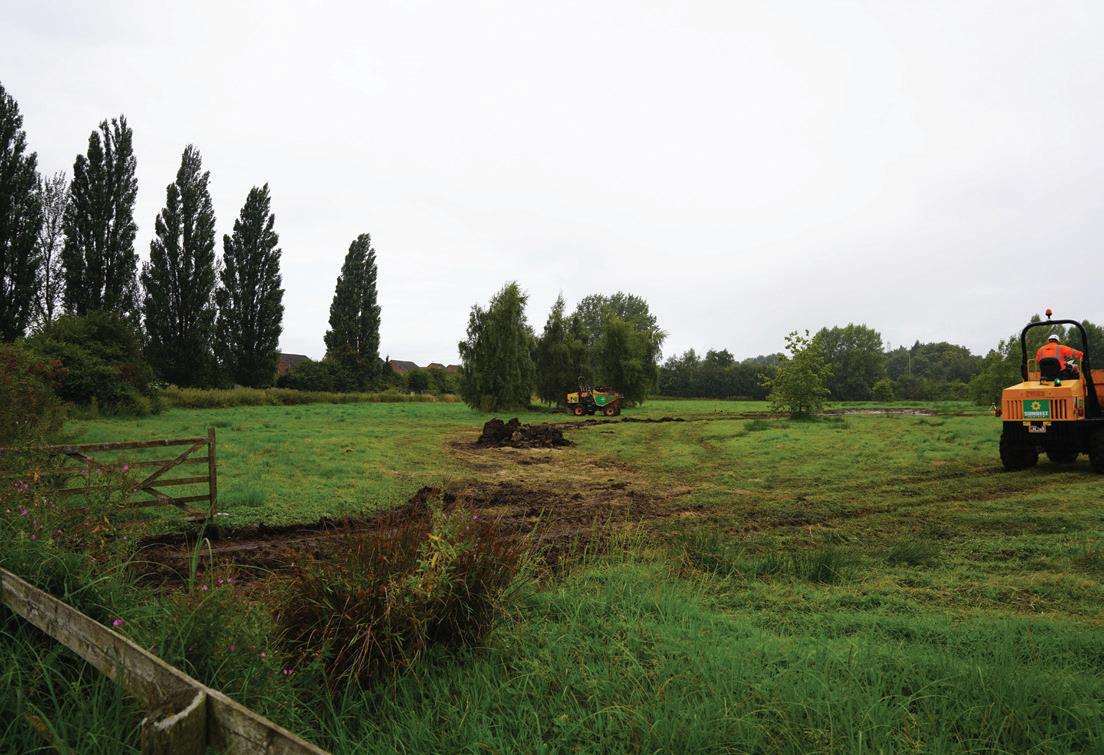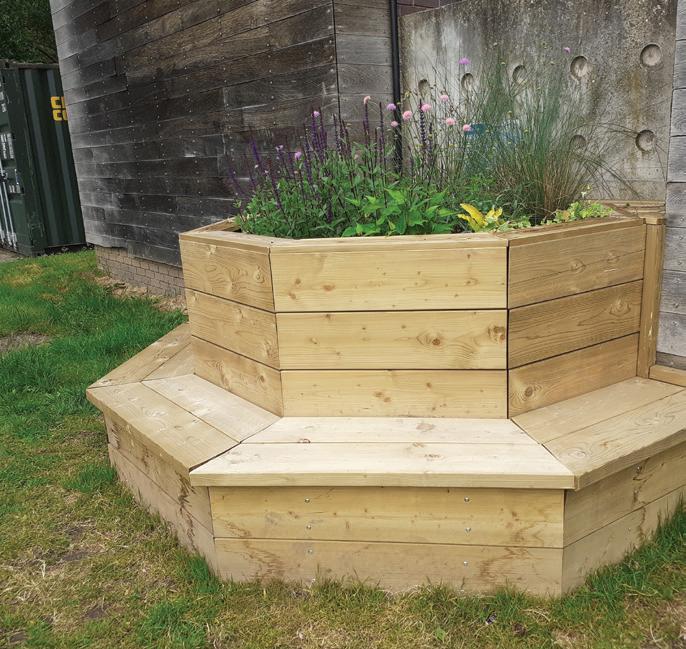De-paving the way
Our Gloucester and Cheltenham Waterscapes project is showcasing the power of natural flood management in urban spaces...
We all know that helping wildlife starts at home (something you’ll read more about later in this edition of Wildlife) and for many of us our first encounters with nature are often on our own doorstep. Even if we live in a town or a city, nature is all around us- but this can bring challenges as well as amazing benefits.
As we face up to the realities of our changing climate, flash flooding in urban areas is just one of many challenges we’ll have to tackle. Luckily for us, nature is on hand to offer solutions. Gloucestershire Wildlife Trust has partnered with RSA insurance on an exciting project aimed at showcasing some of nature’s best solutions when it comes to natural flood management (NFM) in our towns and cities.
Gloucester and Cheltenham Waterscapes is helping to reduce flood risk in the county through an innovative programme of NFM interventions. In research carried out by RSA,
before...
Gloucestershire was identified as one of the areas in the country most likely to suffer from flash flooding, A whopping 15,000 homes in Gloucester and 8,500 homes in Cheltenham are potentially vulnerable to flooding each year. We’ve seen the devastating impact flooding causes across the county on more than one occasion in 2024, and with climate change continuing to cause unpredictable weather, it looks like this will only continue.
As part of a broader campaign to raise awareness of how people can play their part in reducing the impact of flooding where they live, the project team have
been working with homeowners in Cheltenham to showcase how driveway de-paving can pave the way for better urban flood management, boosting biodiversity and protecting wildlife and natural habitats along the way.
We reached out to families in a particular area of Cheltenham that had historically experienced problems with flash flooding and where residents often saw significant water runoff during periods of rain. Four families were chosen to take part in the project, providing “showcase driveways,” to demonstrate the ways NFM solutions could tackle flash flooding from the comfort of their own front gardens!
We talked to Kerry, from No. 147 about why she wanted to get involved in the project and how it’s gone.
...after
Hi I’m Kerry- I live in Cheltenham with my husband and our three boys (and the dog!) and we jumped at the chance to get involved in this project. Before our driveway was covered in tarmac, which had sunk and shifted in places. It was pretty unpleasant for wildlife, there were no plants and we had problems with water pooling when it rained. I hadn’t realised how much of an impact everyone paving over their front gardens to create driveways had had on the road and how much this could impact flooding in the local area too. Some of our neighbours who’ve lived here a long time can remember every front garden still having an area of grass, so I can imagine this change has had a real impact.
Working with GWT on the project has been a really positive experience- the team asked us lots of questions about our lifestyle and routine to make sure the design would work for wildlife and for us as a family. The tarmac has been replaced
with permeable block paving and we’ve got a range of plants near the house to bring in pollinators. So far we’ve seen lots of bees, and various flies and other insects I can’t name! The scented plants by the front door also give us a lovely welcoming smell on the way in and out.
The plants that are in the paving itself have been chosen as they’re really robust- they can stand being driven over and will aid with the drainage- practicality is definitely at the forefront of the design. We’ve even got a water trough now installed on a downpipe, so the water gets collected rather than flowing straight into the drain. It’s preventing flooding but also means we’ve got a ready supply of water to keep our new plants happy too!
Kerry’s driveway is one of four we’ve de-paved as part of the Gloucester and Cheltenham Waterscapes project.
Different driveway de-paving solutions and combinations of features were installed at each of the properties to showcase what’s possible, including:
• Recycled cell grids infilled with gravel, over a permeable sub-base
• Installation of features such as water butts, galvanised troughs and a bin store with a green roof!
• Inter-planting of block paving with robust, low-growing plants
• Permeable block paving, also over a permeable sub-base
De-paving four driveways on the same road has created an incredible nature corridor, providing connectivity for a range of wildlife through this urban space.
Design © Peter Quinn
Gloucester and Cheltenham Waterscapes is taking a wide-ranging approach to showcasing natural flood management solutions in urban settings.
We’re not only working with individuals, but in public spaces and with community organisations too. So far we’ve installed rain gardens in community spaces (including outside Gloucestershire Royal Hospital), created a swale and planted wildflower seeds in Naunton Park in Cheltenham and are currently creating a nature highway in Warden Hill, complete with rain gardens, a green verge and a green bus stop!
Green bus stop illustration
With support from our partner RSA insurance, the team are working with a range of community groups and individuals to deepen their understanding of the role NFM can play in managing flash flooding, bringing a touch of nature to urban spaces and helping to develop a more sustainable future for our towns and cities.






